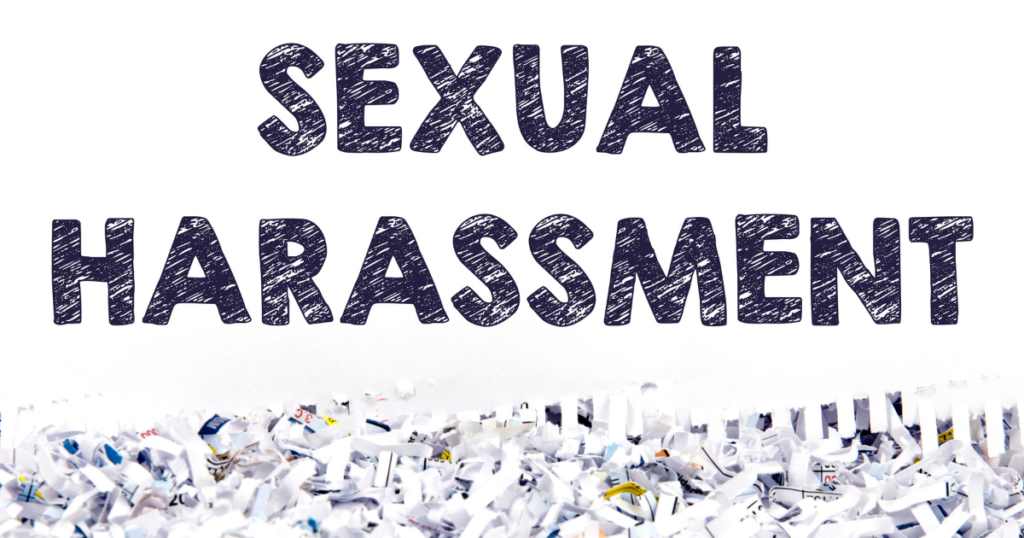Being Jewish
What Rabbinic Organizations Are Doing To Address Clergy Sexual Harassment

Several rabbinic organizations are making sexual harassment training a priority. Over the past three years, the Reform movement’s Women’s Rabbinic Network has brought a program called Clergy: Safe Employees and Employers to 11 seminary campuses of all denominations across the country, training 750 students and campus employees.
“By addressing seminaries, we can model and set standards not only for synagogues, but also all Jewish institutions,” says Rabbi Mary Zamore, the network’s executive director.
Adapted from Fran Sepler’s widely touted protocols for a safe, respectful workplace, the program’s key is to understand the spectrum of behaviors, from respectful, disrespectful, bullying, harassment and assault, with appropriate legal definitions so everyone has the same vocabulary, says Zamore. “We teach institutions to have strong policies, procedures and standards because a lot of interactions among members of a community are governed by federal, state and city laws, but many things are not—and those still deserve care and attention. The more you can emphasize respectful interaction, the more you stave off the really bad behaviors.”
Most umbrella clergy and congregational organizations have their own ethics committee and procedures, some with task forces or subcommittees on sexual harassment. The Reform movement’s Central Conference of American Rabbis’ Task Force on the Experience of Women in the Rabbinate is planning to release a video this year called The Clergy Monologues, in which rabbis and cantors role play examples of inappropriate behavior. The video will be accompanied by a discussion guide for congregations. The group also has created a free set of implicit bias training materials for congregational search committees and rabbis looking for positions.
The Women’s League for Conservative Judaism has provided funding and is raising awareness of the need for change through the Institute for Overcoming Gender Bias and Harassment, established in 2019 at American Jewish University’s Ziegler School for Rabbinic Studies. It has trained rabbis, congregants and women’s groups. Also in 2019, a partnership between Conservative seminaries, the Rabbinical Assembly and United Synagogue of Conservative Judaism began offering an optional webinar for overcoming bias and gender harassment to rabbis searching for jobs and communities searching for clergy.
Navigating the Fallout From Sexual Harassment Claims in Synagogues
The Reconstructionist Rabbinical Association offers trainings to its members through Ta’amod: Stand Up, whose mission is to end gender abuse, harassment and toxic culture in Jewish communal spaces. The rabbinic association is also in the process of considering “behavioral covenants for congregations” that spell out expectations of how all members of the community should behave in order to empower accountability when someone behaves badly, according to Rabbi Elyse Wechterman, the rabbinic group’s executive director.
“In Jewish tradition, relationships are mediated through covenants, britot,” she says. Each congregation would develop its own, according to its needs. “Usually, the movements hear about it when something gone wrong. We have to get past the crisis and have the conversation in advance.”
Shira Berkovits, president and CEO of Sacred Spaces, a nondenominational organization that partners with Jewish institutions to prevent and respond to sexual abuse and other abuses of power, says, “The primary work needs to be done where the problem is, and women are not the problem. The burden for preventing abuse lies with the synagogues and their umbrella organizations.”
Sacred Spaces has just completed an intensive training pilot program, Sacred Synagogues, with four congregations in Chicago and four in Washington, D.C., including Orthodox, Reform and Independent minyanim. The program, which Berkovits says is expanding, helps congregations and institutions develop robust safety policies and procedures; understand the root causes of abuse of power; recognize warning signs; and proactively establish standards for prevention and response.
Sexual harassment and gender bias are important issues for Orthodox clergy as well, according to Esther Altmann, director of pastoral counseling at Yeshivat Maharat, founded in 2009 by Rabbi Avi Weiss to ordain women to serve as Orthodox clergy. The curriculum includes training in identifying and responding to gender bias and microaggressions, says Altmann, who has conducted trainings for students and employees with Zamore as part of the Women’s Rabbinic Network program.
How much does sexual harassment happen to the graduates of Yeshivat Maharat?
“To the extent they are women rabbis in a male-dominated world and to the extent that gender bias and sexual harassment happen in the culture at large, these things are going to happen within the rabbinic domain as well,” Altmann says. “Because women are new as clergy in the Orthodox world, there may be a steeper learning curve for congregants who are experiencing women as rabbis for the first time as well as for male rabbis who are learning how to best support their female rabbinical colleagues in their new roles. We are hopeful that as the women continue to serve in congregations, much of the behavior that is not respectful of boundaries will fall away. It’s a bidirectional process of learning and growth between the culture at large and our specific communities.”
Michelle Friedman, chair of pastoral counseling at Yeshivat Chovevei Torah, the modern Orthodox yeshiva also founded by Weiss, provides its students, all male, with comprehensive training of boundary awareness between rabbi and congregant.
“Emotional intimacy can and should occur when congregants are talking about powerful matters,” says Friedman, “but sexual harassment is likely to happen more to females. Congregants may feel closeness and intimacy, and that needs to be chaperoned by the rabbi.”
Rahel Musleah leads “NamaStay at Home,” virtual tours of Jewish India and other cultural events (explorejewishindia.com).










 Facebook
Facebook Instagram
Instagram Twitter
Twitter
Leave a Reply